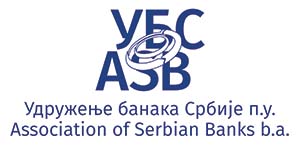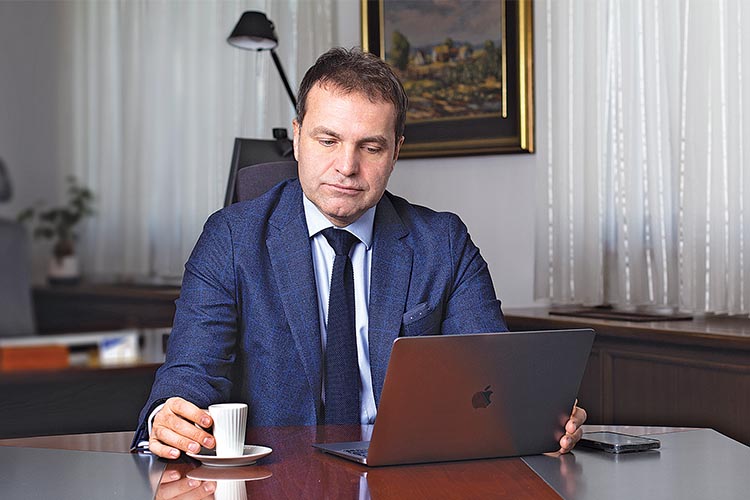The previous year was marked by numerous challenges, from the war in Ukraine, via energy and economic crises, rising inflation in the U.S. and across our continent, to the growth of benchmark interest rates and Euribor. However, despite all this, banks in Serbia operate very securely and without any agitation whatsoever. This provides a serious argument testifying to their stability and ability to participate in the implementing of investments and raising citizens’ living standards
The Secretary General of the Association of Serbian Banks, an institution that has existed for an entire century and can boast of providing a great contribution to the banking sector, observes the economic trends in our country and around the world with a sense of optimism. He expects inflationary pressures to ease, interest rates to fall, growth in savings and credit activity to continue and banks to digitalise further, but also the development of fintech services. Vladimir Vasić believes that banks operating in Serbia will continue mounting resistance against negative global trends and adopting the best solutions from developed markets.
Globalisation is a process that has long since encompassed all segments of life, and that includes the banking system in Serbia. How has it reflected the influence of the world market? Can we feel a sense of serenity?
Globalisation is generally inevitable, and in this sense the banking sector is no exception. Serbia is part of the world in that it receives and implements global innovations, but also in that it feels the influence of the global economy, for example in terms of the interest rate policies of the leading central banks.

However, it should also be noted that banks in Serbia actually exist on the basis of the deposits of local citizens and are thus partly protected against global influences.
The previous years have shown us just how serene we can be. During the COVID pandemic, and the subsequent situation caused by the conflict in Ukraine, during a period of rising inflation globally, banks are operating very securely and without any agitation whatsoever. I believe that this is a serious argument testifying to their stability.
Let’s start with a little optimism… You stated recently that light is finally appearing at the end of the tunnel and that inflationary pressures seem to be coming to an end. What are your expectations and forecasts for this year?
Inflation isn’t an easy opponent and halting it always takes time. That’s why it’s necessary to have a little patience until the activities of central banks and other mechanisms used by governments start to take effect. We are already seeing positive results on the American economy, and we expect to see progress in Europe and Serbia by the end of the year.
Our central bank has announced a halt to inflation in the second half of the year and a significant reduction during the next year. That assessment seems realistic and achievable.
We long had a negative interest rate and the Euribor was also negative, which was good for euro loans until the situation changed. Who has been hit hardest? Will falling inflation drive interest rates down?
Benchmark interest rates increased due to rising inflation and, with its return to planned frameworks, we can expect interest rates to fall. It should also be considered that negative interest rates like those seen over the past decade are not the rule, but rather the exception.

It isn’t realistic for money to be so cheap, though I understand that this was a pleasant situation for sections of the citizenry or the economy.
We are continuing to see growth in savings and loan activity. What does that tell us about the living standard of citizens, trust in the local currency and the banking system, economic trends in Serbia etc.?
The continuous growth of savings is extremely good news for the Serbian economy. I don’t need to remind you that savings form the basis of development, that deposited savings cover the crediting needs of companies and the population. The growth of savings demonstrates growth in the amount of earnings that citizens are able to set aside, but it also points to increased trust in banks and the state, because that money is not, as the saying goes, in straw sacks, but rather in savings accounts.
Our central bank has announced a halt to inflation in the second half of the year and a significant reduction during the next year
The same can be said for the growth of loan activity, which is a way banks operate and also participate in the realisation of investments and raising citizens’ living standards. It is important that loan indebtedness is sustainable, and this is indeed the case in Serbia, because in terms of levels of indebtedness we remain below most comparable countries and regions.
In the field of digitalisation, Serbia is absolutely keeping pace with the world, which is why most tasks are completed without needing to visit a branch. Does the credit for this belong to banks that bring new technologies from their home markets?
The vast majority of banking tasks can today be carried out without the need to go to a counter, or a branch: cash withdrawals and payments, payment by card, QR codes, via the internet or mobile devices. Even opening an account and receiving a loan approval can, under certain circumstances, be completed without paying a visit to the bank. Banking is undoubtedly at the very top when it comes to digitalised businesses and services. The majority of innovative technologies have indeed arrived via the leading European banking groups, which expanded their operations to the territory of Serbia, and that process of learning from the best is continuing.
The banking system endeavours to preserve its certitude and reliability, because they are what make it the basis of every economy. Why is it important to differentiate the system from new, modern and fast financial services?
Banks are already digitalised, and thus very modern and efficient. It’s no secret that we learnt from technological innovators in this process and applied the best solutions reached. In that sense, banking and fintech services are very similar in some domains. On the other hand, we mustn’t forget that banks bring tradition and confirmed reliability, that they are under special attention and operate within the legal framework of regulatory bodies. This is a quality that still distinguishes them from all other market participants.